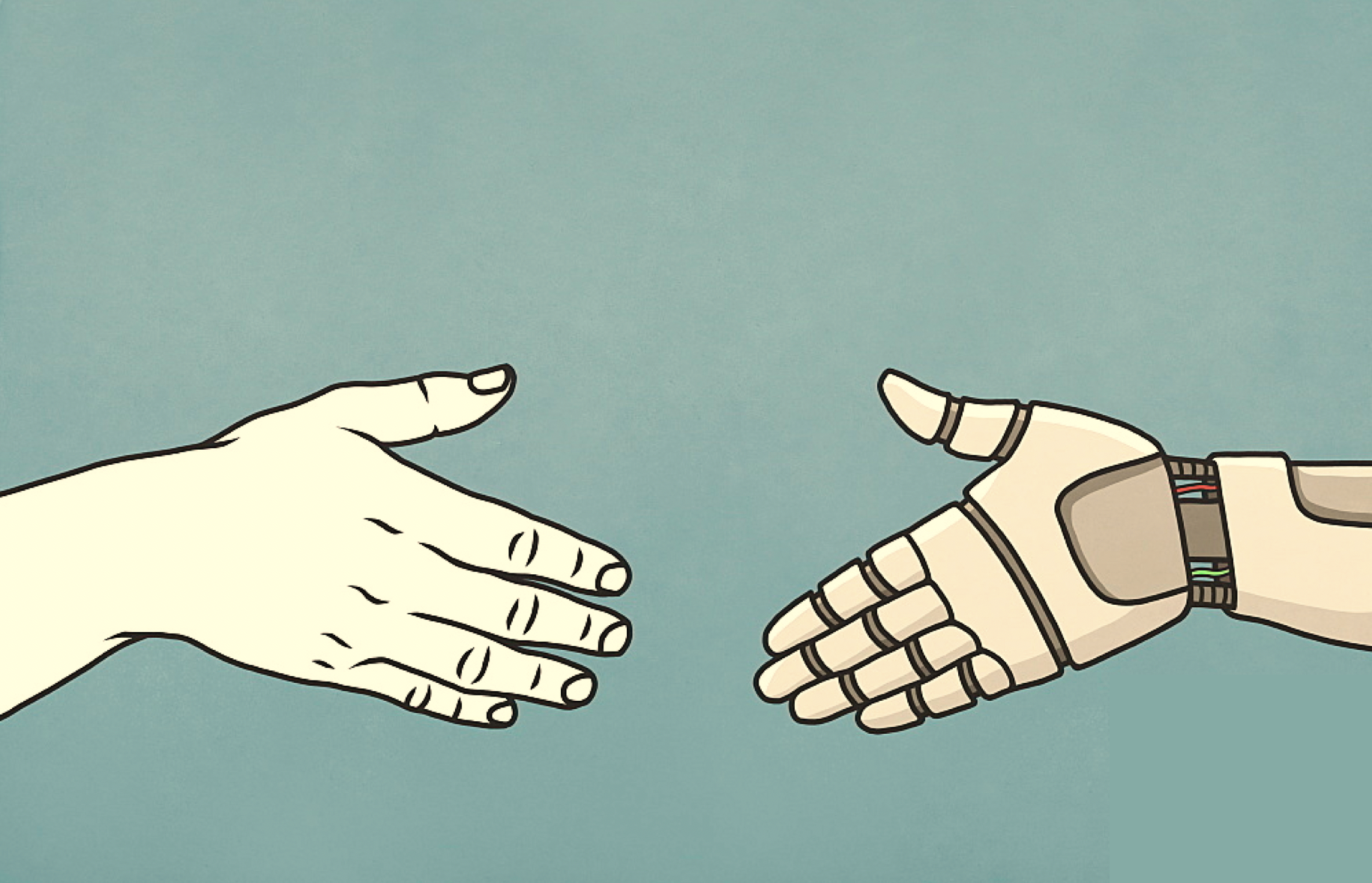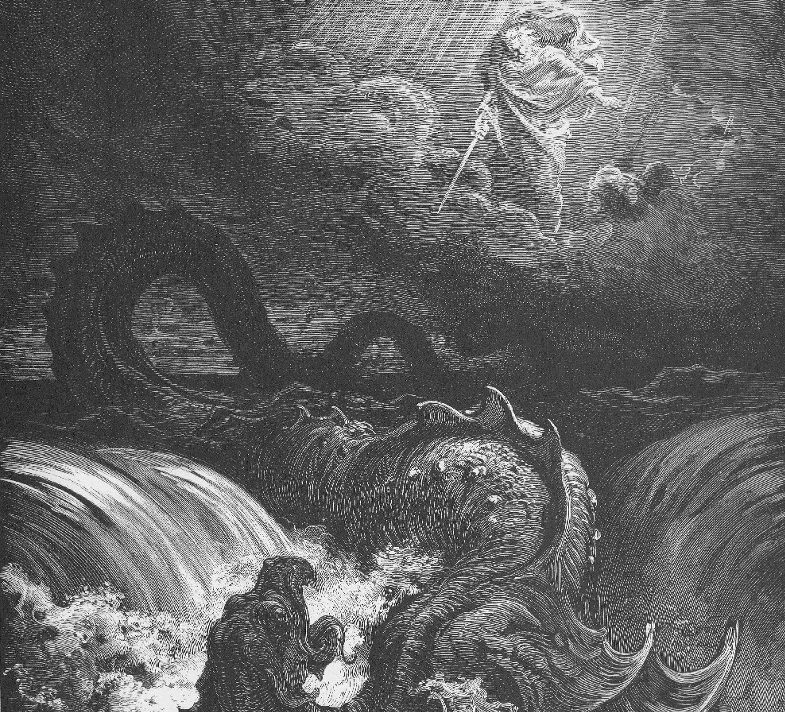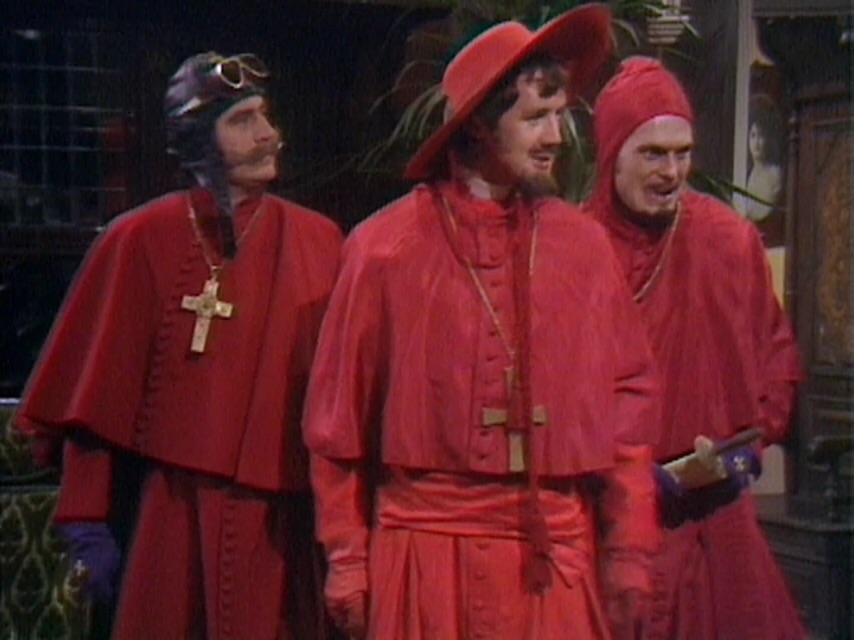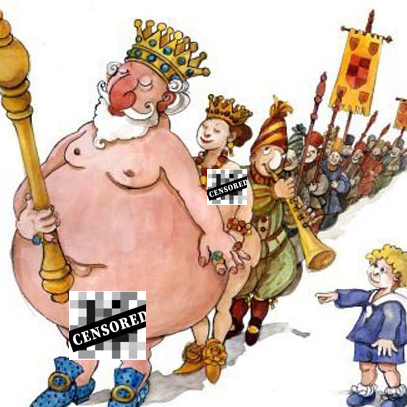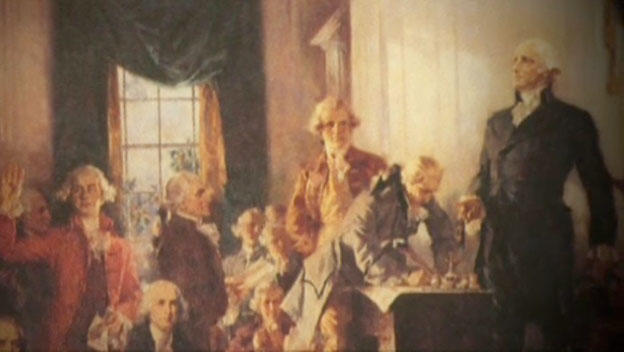Digital conditions, not competing intellectuals, will make it so.
Vermeule, his Critics, and the Crisis of Originalism

More than abstraction is at stake.
Can this be believed? Adrian Vermeule dares to stake out some positions critical of the orthodoxy of Originalism; he throws into the mix some terms about the “common good,” lofting high in abstraction, distant for the moment from any account of the human persons or rights that he would protect under that banner. Add also some veiled references to an “Integralism” that none of the critics seems to understand.
And yet all of this is enough to induce otherwise sober and accomplished writers to do their version of Claude Raines in Casablanca, professing to be “shocked—shocked!” What seems to shock them, though, is not Vermeule’s willingness to say a good word or two for the Administrative State but his willingness to invoke principles that were central to the American Founders.
Unwritten Axioms
Vermeule’s critics write as though any move beyond the text of the Constitution simply propels judges and legislators into a domain of utter subjectivity, bereft of any real truths to test and anchor our judgments. But Vermeule followed the path of the most notable among the founders, for he had the gall to say that there were principles in existence before the text of the Constitution was drafted—the principles that the Founders had drawn upon in shaping the Constitution. And he evidently thinks those principles are as true now as they were when the founders drew upon them.
John Quincy Adams would later say in that vein that the right to petition the government was simply implicit in the very logic of republican government. It would be there even if it hadn’t been mentioned in the First Amendment. It would be there even if there were no First Amendment; and indeed it would there even if there were no Constitution.
Alexander Hamilton showed in Federalist #33 that the “Necessary and Proper” clause and the Supremacy Clause were simply embedded in the logic of the Constitution, and they would be there, commanding the judgments of judges and legislators, even if they weren’t in the text of the Constitution.
This is what I took Vermeule to mean when he wrote that the jurisprudence he is offering “is not tethered to particular written instruments of civil law or the will of the legislators who created them.” Instead, he said that he would draw—as indeed the founders drew—upon a tradition that is informed not only by the “positive law” but also by such “sources as the ius gentium—the law of nations or the ‘general law’ common to all civilized legal systems and principles of objective morality”—aka the natural law.
This is what Hamilton and Marshall meant when they appealed to certain “axioms,” as Marshall said, or certain “first principles,” as Hamilton said, “upon which all subsequent reasonings must depend.”
First among these anchoring truths was the proposition that James Wilson, following Thomas Reid, regarded as the first principle of moral and legal judgment: that it makes no sense to cast judgments of blame or praise on people who lack the active powers to cause their own acts to happen. We don’t hold people blameworthy or responsible for acts they were powerless to affect. As Reid observed “no axiom of Euclid appears more evident than this.” That proposition threads through so many parts of our law, from the wrong of racial discrimination to the insanity defense, and yet it’s not set down in the text of the Constitution any more than the premise of “presumed innocent until proven guilty.”
The genius of lawyers such as Hamilton, Marshall and Wilson was that they had a knack for tracing their judgments back to those same anchoring principles that held true as a matter of necessity.
Declaration Principles
And yet Vermeule’s appeal to an understanding shared by the founders was treated by his critics with derision, as a venture quite beyond any notion of “law” we take seriously.
Dan McLaughlin, a writer I count as a friend, remarked that Vermeule offered a jurisprudence that “is neither really constitutional nor law.” And so McLaughlin sees Vermeule’s heresy at work in appealing to “a body of philosophy that could substitute for written law.”
McLaughlin says the most important part of the Constitution was the opening line, “We the People…do ordain and establish this Constitution.” But that is where he falls into a familiar mistake, where Lincoln would have saved him. Surely, the mere fact of asserting the right of the people, or anyone else, to rule cannot be enough to establish the rightness or legitimacy of that rule. As Rousseau warned, the fact that some people seize power and proclaim their right to rule cannot itself establish the rightness of that rule.
Lincoln showed, in his First Inaugural, how the rule of a majority under constitutional restraints is the only operational form of government by the consent of the governed. But the rightness of those procedures depended on the principle that had to be there—and true—before the procedures were enacted.
That principle was found for Lincoln in that “proposition,” as he called it, that “all men are created equal”: that no man is by nature the ruler of other men, and the only rightful governance over human beings must depend on the consent of the governed. That principle came with the Declaration of Independence and, as Lincoln well knew, it preceded the Constitution both logically and in time.
My late friend Antonin Scalia insisted that the Declaration had no standing in our law because it was never enacted. But in that curious view he missed entirely the logic that John Locke had unfolded with his train of three quick questions:
What is the source of the law? Answer: the legislature.
But what is the source of the legislature? The Constitution, which tells us whether we have a legislature (or how many chambers it may have).
But then what is the source of the Constitution? It had to be, as Locke said, a source “antecedent to all positive laws,” and that authority was “depending wholly on the people,” on their natural right to be governed with their own consent.
And yet McLaughlin and other critics have the vivid sense that we would be stepping into danger—and enfranchising even further the willfulness of the Left—if judges were permitted to move beyond the text of the statute and the Constitution in reaching their judgments. But from the very beginning, Marshall, Hamilton and Wilson showed why it was utterly necessary to reach back to those principles that were there before the text, precisely for the point of explaining the text.
This is a mode of judicial reasoning that continues, perforce, in our own day, because it is inescapable in the task of applying principles to cases. And so Felix Frankfurter would raise the question, Where is the accent to be placed in this familiar phrase in the Fifth Amendment: “nor shall [any person] be compelled in any criminal case to be a witness against himself.” Is the key phrase “against himself”? If we grant the suspect immunity can we compel him to testify against his friends, say in the Communist party?
The point was that it simply becomes necessary, at so many turns, to appeal to those principles that were there before the Constitution as we try to apply the Constitution sensibly in the cases coming before us now.
Surely no jurist in our own time has been closer to pronouncing an anathema on moving beyond the text than Justice Scalia. And yet he found himself doing it quite often—and doing it, as I thought, quite handsomely—as he sought to show what was so deeply reasonable in his own positions.
Toward the end of his days on the Court, in Williams-Yulee v. Florida Bar (2015), Scalia declared, in dissent, that “The first axiom of the First Amendment is this: As a general rule, the state has no power to ban speech on the basis of its content.” An “axiom of the First Amendment”? My own copy of the First Amendment does not contain that axiom. As it happens, I’ve spent a good portion of time over 40 years arguing against that position. And Scalia himself was derided for this view by his colleagues Byron White and John Paul Stevens, who never saw that axiom lurking in the First Amendment.
All of which may alert us to two points: (a) Even the most adamant textualists will have to appeal at times to principles and reasoning outside the text. And (b) yes, people can indeed get it wrong when they make those appeals beyond the text—and that does not end the matter, or hurl us into a domain with no standards of judgment. The argument may still go on with reasons and evidence, as we try to gauge which one of us has it right. And of course no argument makes sense unless we assume that there are standards of judgments at work to test these arguments and give us, at some point, right and wrong answers.
I’m afraid there is absence of self-awareness among my friends who have been so critical of Vermeule, for what their reactions reveal most sharply is their deep separation from the American Founders on this sovereign point: that in their heart of hearts the critics really seem to doubt that there really are any moral truths outside the text of the Constitution. They run the risk of falling into that soft nihilism that William Rehnquist expressed when he famously said that the “safeguards for individual liberty…take on a generalized moral rightness or goodness,” not “because of any intrinsic worth” but “because they have been incorporated in a constitution by a people.”
As Harry Jaffa, of blessed memory, so tellingly remarked, that perspective begins by denying that there is any intrinsic worth in the individual person himself, for if there were, that would indeed be the source of personal rights of intrinsic worth. This is deep legal positivism, and I’m afraid that it is indeed a defining strand of what has come to mark “conservative jurisprudence.”
The Problem of the Common Good
Vermeule’s call for a jurisprudence of moral substance was nothing if not a challenge to this style of conservative jurisprudence. I took his accent on the “common good” as the raising of a rival standard in challenging a jurisprudence empty of moral content. But there, I think, Vermeule takes the step that may mark a serious evasion on his own part, and threatens to pull him from that jurisprudence of moral substance that he covets.
Yes, we’ve understood since Aristotle’s Politics that the deep corruption of the political order comes when political power, power over the whole of the people, is used for the sake of serving only the private interests of those who rule. But a policy serving “the common good” cannot mean that any enacted policy will deliver material benefits evenly, commonly, to every citizen and resident of the country. Nor could Vermeule offer some gross utilitarian scheme of serving the interests of “most of the people most of the time.” Nothing in that formula itself could explain the rightness of putting those boys on the beaches in Normandy in 1944.
No law can possibly work to diffuse its benefits to everyone. But it matters profoundly if we can say that a law finds its ground in a principle that holds true for everyone who may come under it. A ready example would be that “first principle of moral and legal judgment”—that we “may not hold people blameworthy or responsible for acts they were powerless to effect.” No one would be diminished when he is expected to live under laws formed by principles of that kind. To live under laws of that kind is to live in a state of justice, with laws that truly merit the respect of everyone who comes under them, even if they gain no material benefit from any of these laws.
My own concern, then, about Vermeule’s hoisting of the “common good” as a banner is that, with all of its uplift, it rises to a loft of abstraction. Vermeule hints that his version of jurisprudence could make a notable difference on “free speech, abortion, sexual liberties, and related matters.” But it isn’t evident on the surface just how the substantive arguments would unfold on these questions as they spring from a notion of “common good.”
That dangling term “sexual liberties” can cover same-sex marriage and the new drive for Transgenderism, and one has to wonder what exactly Vermeule has to say in moving from the “common good” to either of these questions. Those who put the accent on the “common good” may have a tendency to shy away from those contentious issues that arise over the rights and claims of those discrete, forked creatures, composed “of eros and of dust,” who fill our landscape. Adrian Vermeule has expended his genius in writing books and articles on the Administrative State. But we have not seen yet the reasoning he would unfold as he moves to those vexing issues that have so altered our politics and culture.
A Constitutional Solution
It may be that Vermeule would finesse these problems by folding them into what he calls the “principles of administrative law’s inner morality.” Vermeule has not seen the Administrative State as a grand Bogeyman, and it may be that the appeal comes from Max Weber’s classic sense of “rational-legal administration,” and the settling assurance of living under a system of fair and “rational” rules.
But Vermeule has identified his version of the natural law with the powers of the “energetic” Executive.” As it happens, I must count myself as a deep friend of the Executive power, for there is no one who would be alive in my family today were it not for the projection of American power in the world in that pivotal interval in 1940-41—and that power was projected almost entirely by the hand of FDR, with only the most tenuous ties to the laws.
And yet, as Plato taught us, a man with self-control has a kind of “constitutional ruler” within himself, and he is not a weaker, but a stronger man. An Executive under constitutional restraint is not, then, a weaker, but a stronger Executive, more competent to its rightful ends.
As James Wilson reminded us, it was the very purpose of this government—in all of its branches—to secure those natural rights for which governments were formed. There is a moral logic bound up with the separation of powers that is widely overlooked: it works by cautioning legislators that the laws they lay down for others will be enforced by hands other than their own. And so they had best be cautious not to lay down laws they would not see enforced, with their full stringency, against themselves.
It is not fully clear that Vermeule bears any special reverence for the American Founders and that “liberal” order they had helped to bring forth. But if he does seek to restore a recognition of the natural law as the ground of the constitutional order, he would help to shape a jurisprudence that could now give a morally coherent account of itself. An Executive power, working within the constraints of that constitutional structure, would be an Executive with its rightful powers, and more competent now to its truest ends.
A Looming Test Case
Leo Strauss drew from Machiavelli this one, often useful lesson: that when a wise man preserves silence on a matter that everyone else thinks important, he gives us to understand that it may not be quite so important after all.
In his list of items on the cutting edge, Vermeule mentioned “sexual liberties,” but he was silent on the particular matters of same sex marriage or Transgenderism, that new wave ready to break, with amplified effects, on our law and politics. But whether Vermeule will have anything of weight to say on that subject will be quite telling, for this issue must mark the furthest, most radical reach to the claims of sexual liberation. For not only are we to be delivered from any restraints on the practice of genital stimulation in any form, under the banner of “sex.” We are to be emancipated also from the most objective truths about those facts in biology, in structure and cells, that mark the deep differences in nature that distinguish males and females.
When we find legislatures passing laws to forbid parents to seek counseling for their teenage children suffering gender dysphoria, the warning lights should alert even the dimmest of us that we are the threshold of an unraveling of the American regime. As it happens there is indeed a serious case on Transgenderism before the Supreme Court this term, Harris Funeral Homes v. EEOC. If that case brings forth a new right of a person to decide on his own gender—and compel everyone around him/her/it to confirm that understanding—the engine promoting Transgenderism will be released from any lingering caution of tentativeness. It will be spurred on to new aggressiveness, drawing on a new surge of endorsement and legitimacy supplied by the Supreme Court.
For that to happen, there would have to be a defection from one of the two new conservative appointees to the Supreme Court. On the face of things, that seems highly unlikely. But for 30 years now, Republicans who have pinned their hopes on the Court have been affected with the imminent sense of a sellout ready to happen.
It came with the gravest jolt in 1992, in Planned Parenthood v. Casey, when the Court seemed one step away from overturning Roe v. Wade. But we had the demoralizing defection of Sandra O’Connor and Anthony Kennedy, appointed by Ronald Reagan, along with David Souter, appointed by George H.W. Bush. Twenty years later, the move of John Roberts to save Obamacare confirmed, at the cellular level, the deep suspicion among conservatives that something will go wrong.
And now there is a building fear that one day coming this spring, at the end of June, before the cock crows three times, someone will defect, this time on the matter of transgenderism. I do not hold to that view myself. But seasoned lawyers who watch the Court closely do take this matter seriously, and so it cannot be dismissed out of hand.
Neil Gorsuch and Bret Kavanaugh have been given the vetting that conservative lawyers have taken as the Gold Standard. They were selected after the screening done by conservatives who were seasoned, and determined to avoid another Souter. They carried the stamp of the Federalist Society, especially Justice Gorsuch, who was offered as the true successor to the man he replaced, Justice Scalia.
But if there is a dramatic failure on the issue of Transgenderism, no one who cares about these matters will take Originalism seriously again. Yes, the Federalist Society will survive as the most vibrant and honest forum of debate on constitutional law, and those of us who were “present at the creation” will still continue to revere the founders and teach the writings they left us.
But Originalism would be exposed as utterly empty of jural and moral substance on the gravest questions that come before the Court. What has been presented as a body of conservative doctrine on jurisprudence will have been exposed as wanting of anything substantive to say in confronting the next Roe v. Wade or Obergefell v. Hodges, the next pivot point in the transforming of the culture.
Hence the deepest irony of this gnashing of teeth over Adrian Vermeule. His criticisms have been taken as a deep sin against Originalism. But all of this comes at a time when Originalism itself stands at risk of discrediting itself if things go the wrong way in that case on transgenderism.
The brute fact that makes Vermeule’s point is that the Federalist Society will survive, precisely because half of the members will not care if the Court puts new wind in the sails of “transgenderism”—so long as mantras on “textualism” will be spoken, as they surely will be. For half of the members will simply not care what is said about any right or wrong way of understanding the meaning of sex—any more than they cared on whether the principles of the Constitution had any real bearing on protecting human life in the womb. And some of the members, libertarian on sex, will actually be rejoicing at the outcome.
What has not yet been grasped is that the sneering at Vermeule in the name of Originalism has in fact confirmed his case about what is so wanting, so morally incoherent, in what has been offered to us, with high celebration, as “conservative jurisprudence.”
The American Mind presents a range of perspectives. Views are writers’ own and do not necessarily represent those of The Claremont Institute.
The American Mind is a publication of the Claremont Institute, a non-profit 501(c)(3) organization, dedicated to restoring the principles of the American Founding to their rightful, preeminent authority in our national life. Interested in supporting our work? Gifts to the Claremont Institute are tax-deductible.
Liberalism Is the Politics of Fear.
"Real Originalism has never been tried..."
In its effects, it is synonymous with liberalism.
A jurisprudence for all seasons—especially ours.
Only a dark theology can baptize the administrative state.

